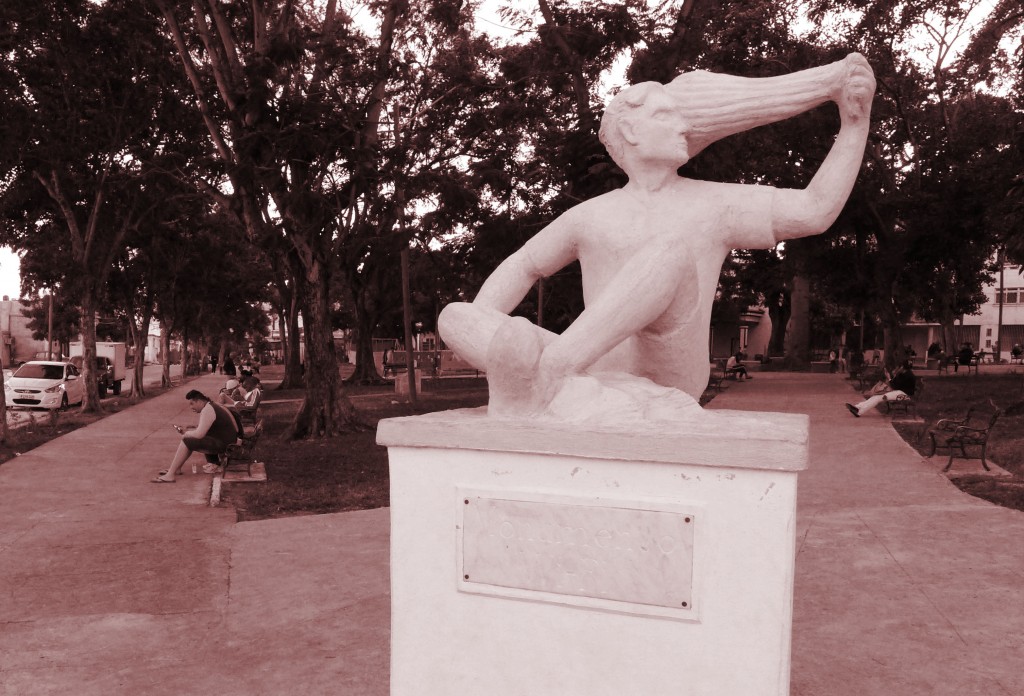
Spending some time in Cuba recently was a good opportunity to consider the problems of trying to common institutions from the inside, that is to say, bring them under the control and effective ownership of those who they affect, and particularly those who work within them. Applying this to the institutions that structure our daily life would require a radical transformation in the way we think. It is not natural for us to think of them as our institutions, to take responsibility for them, to work together with others to nurture them. It is tempting, given the radical change needed, to say that we should scrap the old institutions and start again. Yet in societies as complex as ours, it doesn’t seem viable to suggest a clean slate. We are up to our necks in authoritarian, undemocratic institutions – workplaces worst of all – and we are entirely reliant on them. We can’t abolish them and start again, for ordinary people would suffer at least as much as the owners of the institutions. So it seems we have no option but to change them to suit ourselves.
To be in Cuba is to remember how difficult it is to change authoritarian institutions. It is difficult, and not always illuminating, to talk to Cubans about politics directly, but most people are happy to talk about the economy. Many are appreciative of the welfare state elements of the Cuban economy, and as someone who has been to many Latin American countries it was a pleasure to see so much less deep poverty in Cuba than in most of the continent. But it seems that nobody, including the government, knows how to get an increased standard of living out of the state economy. Increasingly then the government response has been to open up to the private sector, with a mixture of large infrastructure contracts and small businesses for everyday services. Having a tightly controlled private economy would be the dream of many people, and some Cubans are undoubtedly happy with the government’s direction, but for many Cubans the centrally-controlled market/state economy is a constant obstacle course to negotiate. They do not feel in control of the decisions the government makes about which parts of the economy to privatise and how much, or where the resources of the nationalised parts of the economy are to be spent. The markets that develop out of the privatised sectors can be highly anomalous – second hand cars costing tens of thousands of dollars being an example.
Our own markets are equally full of such strange distortions: the price of houses, the failure rate of small businesses due to rent, the externalisation of environmental damage. This gets naturalised as something we can do nothing about. In Cuba, people at least know it is a result of government decisions, and to some extent a result of the US embargo. They know too that they can do almost nothing about it, for the government reacts to protests with violence. This seems to me to be very sad, because people have an instinct to make institutions they are part of work for them. It is one of the failures of Cuba that it has not permitted this type of institutional democracy. But no less sad is the resignation many people feel at market strangeness and authoritarian work environments in Western economies. They can’t be put in prison, it is true, but poverty is another type of prison, and not playing the game means exactly that.
Cuba provides another warning here. The lack of support of many for the Cuban government springs from one main well: dissatisfaction with the material standard of living. This is for many people the main objection to the government, rather than a lack of political freedom they often barely notice in reality. For a time nothing marked the success of the regime as much as the government’s ability to provide. Now nothing marks its failure so much as the government salary and the failure to provide. There is a collectivity felt by many Cubans, they like to work for the government, aware they are contributing to their community and nation, but even these people throw up their hands in despair at the government salary. It is a stark reminder that support for any economic project is contingent on its ability to meet people’s needs and desires. We could invent the most theoretically sound economy in the world, but if the shops were half empty as in Cuba, it would get little support. We should think carefully about whether transitions to a new economy are politically viable. If we cannot maintain broad political support for a commoning economy it would not last long.
But on now to glimmers of hope: one of the most interesting phenomena in Cuba at present is that of ever-increasing internet access. Most people can only access internet on Wi-Fi in public parks, but increasingly even private homes are able to obtain Wi-Fi routers. There is a vibrant Cuban blogging community, and sites such as the Havana Times emerging to criticise the government from left as well as right. For people who fear to communicate with each other, the internet is a gift.
If we follow the parallel with authoritarian institutions in the West, particularly workplaces, one wonders whether the internet has truly been exploited to the full yet. A few websites such as glassdoor.com allow employees to take a measure of revenge on bad employers, but this is tinkering around the edges. We need to ask whether we can find a way for people of an anti-authority persuasion to begin to interact with each other from within the belly of the beasts. Trade unions, it is true, have been the traditional vehicle for exerting employee power in the workplace, but they have their limits, and one of them is that they have rarely sought to undo the boss-worker relationship.
Yet the task of challenging the bosses feels too intimidating for us to even begin, for any open declaration of intent would be met with the termination of our employment. If we want to undo that relationship, if we want to common our institutions, we will often have to campaign in secret. Now on online blogs such as this, we can at least begin to imagine it. The next step is surely to ask whether we can we build platforms specifically for those who live in fear of their bosses, for those who don’t accept the authoritarian rule of the markets. Can we bring together those people in organisations who know they should have their say in the running of the organisation? Where are the anti-authoritarian workplace apps? Where is the wikileaks for circulating documents within a company or within an industry? Where are the apps to link garment workers in Bangladesh with shop workers in London? We have the opportunity to develop a new movement of resistance to authoritarian institutions. Are we only slow to move because it is hard to fund such platforms? Or are we still frightened?
There is every reason to be scared, but perhaps we can start to use our new communications technologies to face our fears. One of the lessons we can learn from Cuba and many other countries around the world is that it is sometimes the internet that makes opposing authoritarianism go from feeling impossible to feeling merely difficult. Difficult is fine. We are just at the beginning.
